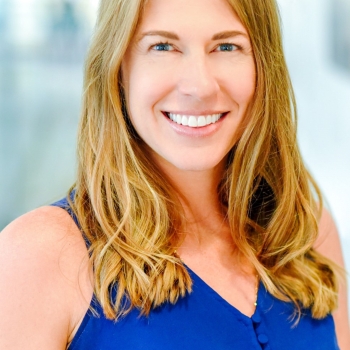By
Published
September 18, 2019
Tags
Do. Achieve. Optimize.
As a single working mother, I know these forces well. At any given moment, I could list for you the many ways I want to grow as a person and employee. I am constantly striving to do more and be better, no doubt thanks to a thoroughly modern mix of intrinsic motivation, societal expectations and internal and external pressure.
Of course, I am not the only one. It seems like the propensity for self-improvement and achievement is everywhere these days. Whether by nature or by nurture, our society has become increasingly goal-oriented. We make lists in our notebooks. We download habit apps on our phones. We identify a change we want to make and then resolve to do better.
And yet, as anyone who has ever made a New Year’s resolution can attest, change is easier said than done. We are rock stars at taking on more than we can handle and experts at becoming discouraged when we fall short of our own expectations.
All of this has been on my mind as our team here at the Schusterman Foundation prepares to celebrate the Jewish New Year. How can I embrace this time of reflection and renewal and make changes that matter to me? How can I stay both inspired and accountable to myself throughout the year?
No doubt Harvard Graduate School of Education professors Robert Kegan and Lisa Laskow Lahey would encourage me to set my goals wisely. In their book Immunity to Change: How to Overcome It and Unlock the Potential in Yourself and Your Organization, Kegan and Lahey suggest that only by examining our motivations, anticipating the obstacles in our path and considering our goals within the context of our many competing commitments can we begin to transform.
This process informs our curriculum for the Schusterman Fellowship, an 18-month leadership development program that our team runs. Fellows begin their journey with a deep dive into the idea of “leading self,” which helps them examine where they might be getting in their own way and commit to practices that will maximize their leadership potential.
But for those of us who are simply stealing a few minutes between calls to contemplate change, I am here to offer an easy first step: choose one word.
Since 2012, I have been choosing a single aspirational word to guide my progress each year. For example, last year I chose the word “ready.”
I wanted to use my word to help me find the confidence to tackle new professional responsibilities. As a Senior Program Officer on the Schusterman Foundation’s Leadership and Talent team, I am in charge of stewarding the Senior Fellows community, which engages and supports Schusterman Fellows after they complete the initial Fellowship program.
With this responsibility has come the need to set up a brand-new advisory committee, organize and oversee a multi-day gathering in Israel and, as always, weather the pangs of impostor syndrome while planning an engagement strategy for highly accomplished and talented individuals.
To help me tackle these new challenges, I invoked “ready” before I walked into meetings or any time I started to feel inadequate. The word reminded me that wherever I am, whoever I am, I am ready to do the best I can. I do not have to be more than that.
What surprised me was how applicable my word was to all parts of my life. As my daughter starts preschool and I continue to navigate the art (unknowable magic trick?) of work-life balance, “ready” has been my way of pursuing my goals without the fear of failure. After all, a word is more about inspiration than it is about accomplishment. It is more about being than it is about doing.
Most importantly, embodying a word takes very little time. In one breath, I can call my word to mind and use it to shape my actions. It is there for me when I need it and yet never appears on my to-do list.
But if you won’t take my word for it (pun very much intended) then consider that Melinda Gates also chooses a word of the year. In a LinkedIn post, Gates talks about forgoing traditional resolutions in favor of one word. Rather than treat it as yet another task that needs to be completed, Gates turns to her word as a supportive reminder, one that helps her assume a positive mindset during important personal and professional moments.
Over the past few years, words like “gentle,” “spacious” and “grace” have helped Gates stay present, grounded and hopeful while working to meet some of the world’s most heartbreaking needs. As she writes, “That’s the power of a well-chosen word of the year. It makes the year better—and it helps me be better, too.”
In many ways, this practice taps into the wisdom of kaizen. Inspired by the Tao Te Ching, kaizen is the art of creating great and lasting change by starting small. Kaizen expert Dr. Robert Maurer builds on this concept in One Small Step Can Change Your Life. He argues that we can sidestep our inherent fear of change and resist our fight-or-flight instincts by moving incrementally toward our goals.
Jewish wisdom offers a similarly important message. In this age of productivity and (over)achievement, it is tempting to fill our time without thinking. But Shabbat and other rituals remind us that time is sacred and that taking a break from doing is holy. As the Jewish New Year approaches, I believe we owe it to ourselves to pause, consider what is most important to us and renew our efforts with intention.
The Tao Te Ching would tell us to start our formidable journey toward change with a single step. For my part, I will be starting with a single word. I know that whatever this year has in store for me, I am ready.
So, what words did our network members and partners choose? View them here and get inspired!








